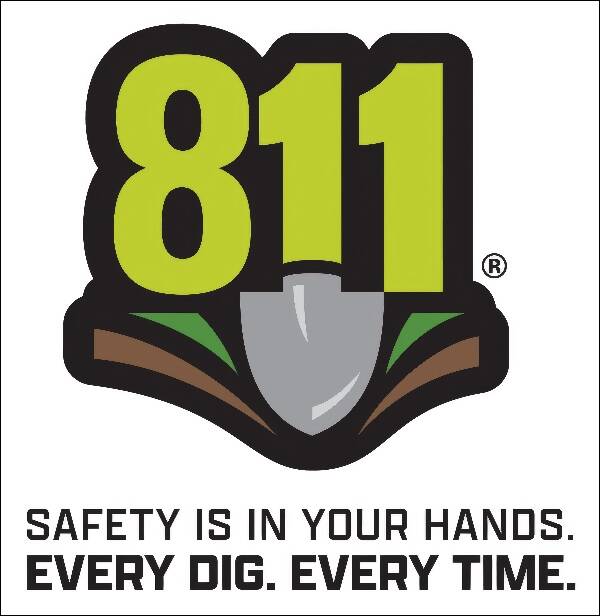Puget Sound Energy (PSE) has put out an appeal to call 8-1-1 before digging.
The appeal comes now because it’s spring and summer —the active seasons for homeowner do-it-yourself projects. The 8-1-1 locator service costs nothing but can save you a lot of money, trouble, and personal danger.
Digging without knowing the location of underground utilities can cause serious injury or death, interrupt service to your neighborhood, and cost thousands of dollars in fines and repairs.
According to PSE, homeowners in King, Snohomish, and Pierce counties accounted for 95% of all natural gas pipeline damage events in the state in 2022, the most recent full year of statistics available. Sadly, many of these dangerous and expensive incidents could have been avoided because about half were caused by people who did not call 8-1-1 before digging.
- The 8-1-1 service will come to your project and mark the areas where you need to avoid underground gas, electric, telephone, cable, water and sewer lines while digging.
- State law requires notifying 8-1-1 even for small projects like planting a garden or installing a mailbox, since many utilities are buried just a few inches below ground. Call 8-1-1 any time you will be digging more than 12 inches deep.
- Always contact 8-1-1 a few days before digging, regardless of the depth or familiarity with the property.
- Plan ahead. For example, make a free 8-1-1 request on Monday or Tuesday for work planned for an upcoming weekend, providing ample time for the approximate location of lines to be marked.
- Confirm that all lines have been marked and consider moving the location of your project if it is near utility line markings.
- If a contractor has been hired, confirm that the contractor has contacted 8-1-1. Don’t allow work to begin if the utility lines aren’t marked.
Respiratory Virus Transmission Alert Levels Down
Levels of the three major respiratory virus illnesses have fallen significantly since the first of the year according to the online dashboard graphs maintained by Public Health — Seattle and King County (PHSKC). The agency has set threshold levels to alert health care facilities if preventative measures should be taken.
Influenza (flu) and COVID fell below alert levels several months ago. During the month of April, the RSV disease level has dropped below the alert line as well.
New: You Can Track Climate Change Health Impacts
The county’s public health experts also have started tracking climate change effects that can have a significant effect on your health. For example, they say, future hay fever seasons could be even worse than this year as average temperatures rise. Have a look for yourself by visiting tinyurl.com/PHSKCclimate.
In general, climate change In the Pacific Northwest is leading to longer, hotter summers and more intense wildfire seasons. These weather events exacerbate short-term and long-term effects such as heart and lung problems, heat stroke, and even lead to mental health distress, among other things. They can also put stress on our healthcare system as emergency department visits and 911 calls increase.
The new dashboards from PHSKC track climate against heat-related illness, cold-related illness, asthma, seasonal allergies, foodborne and waterborne illness, as well as vector-born disease.


